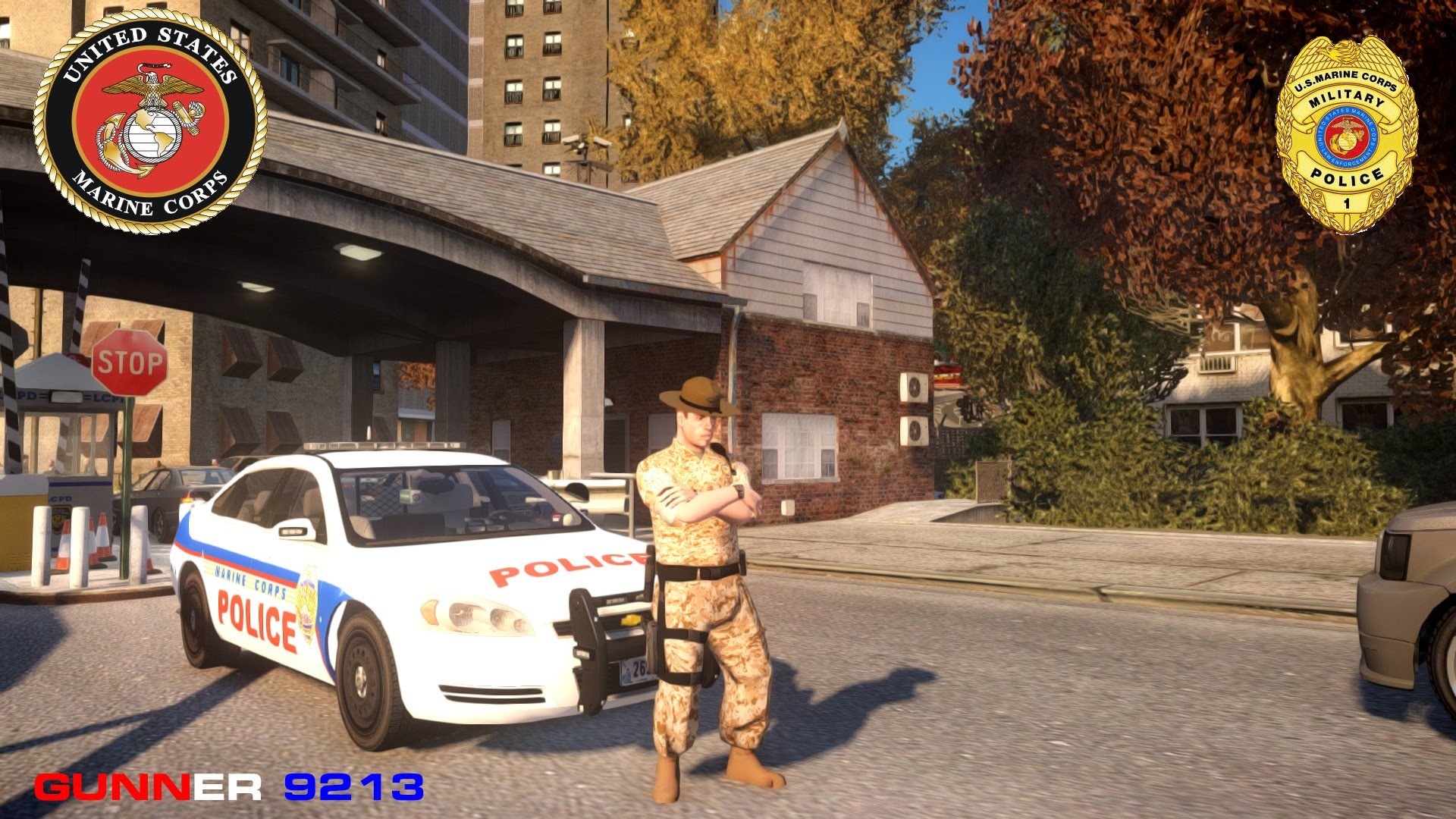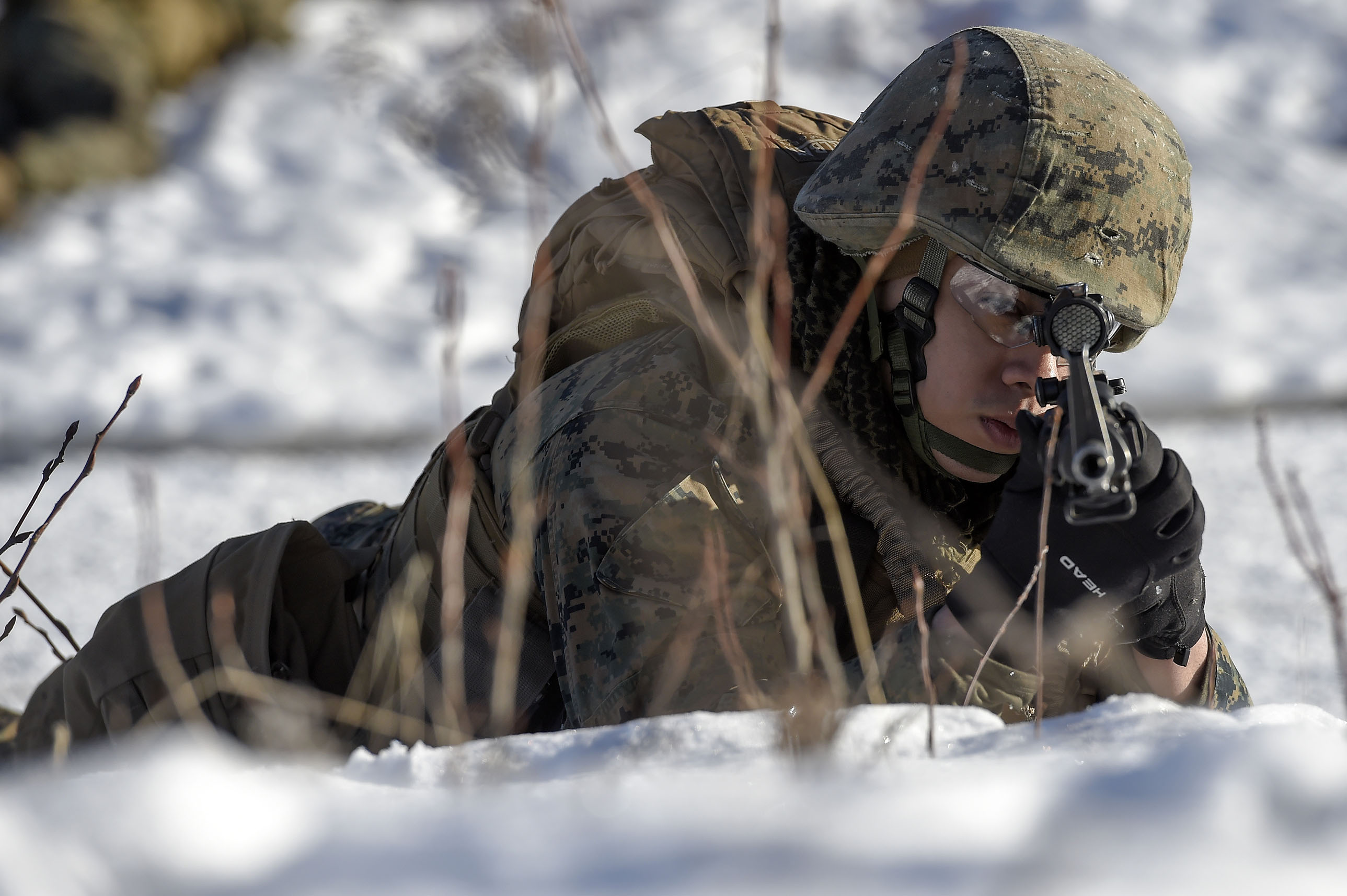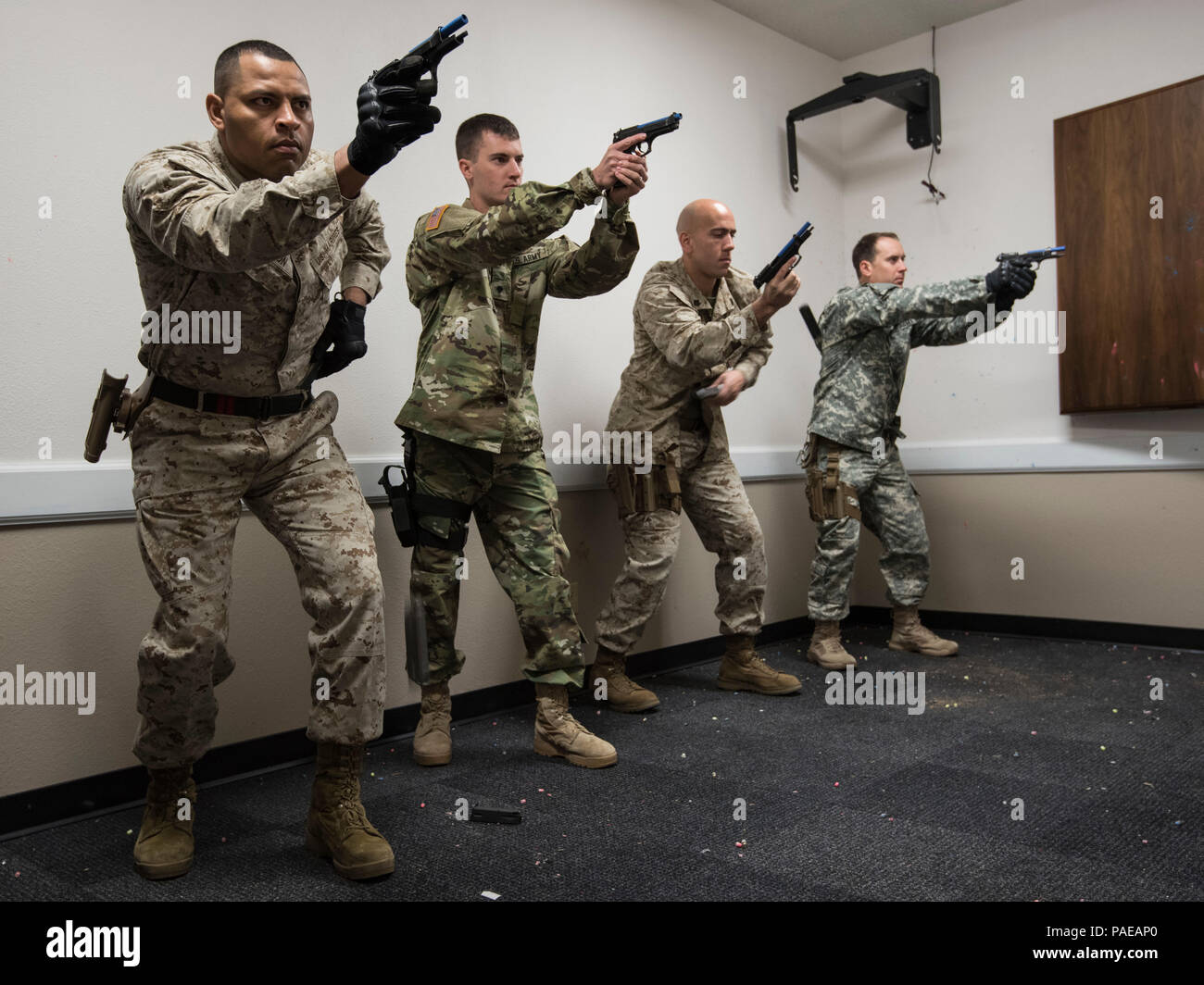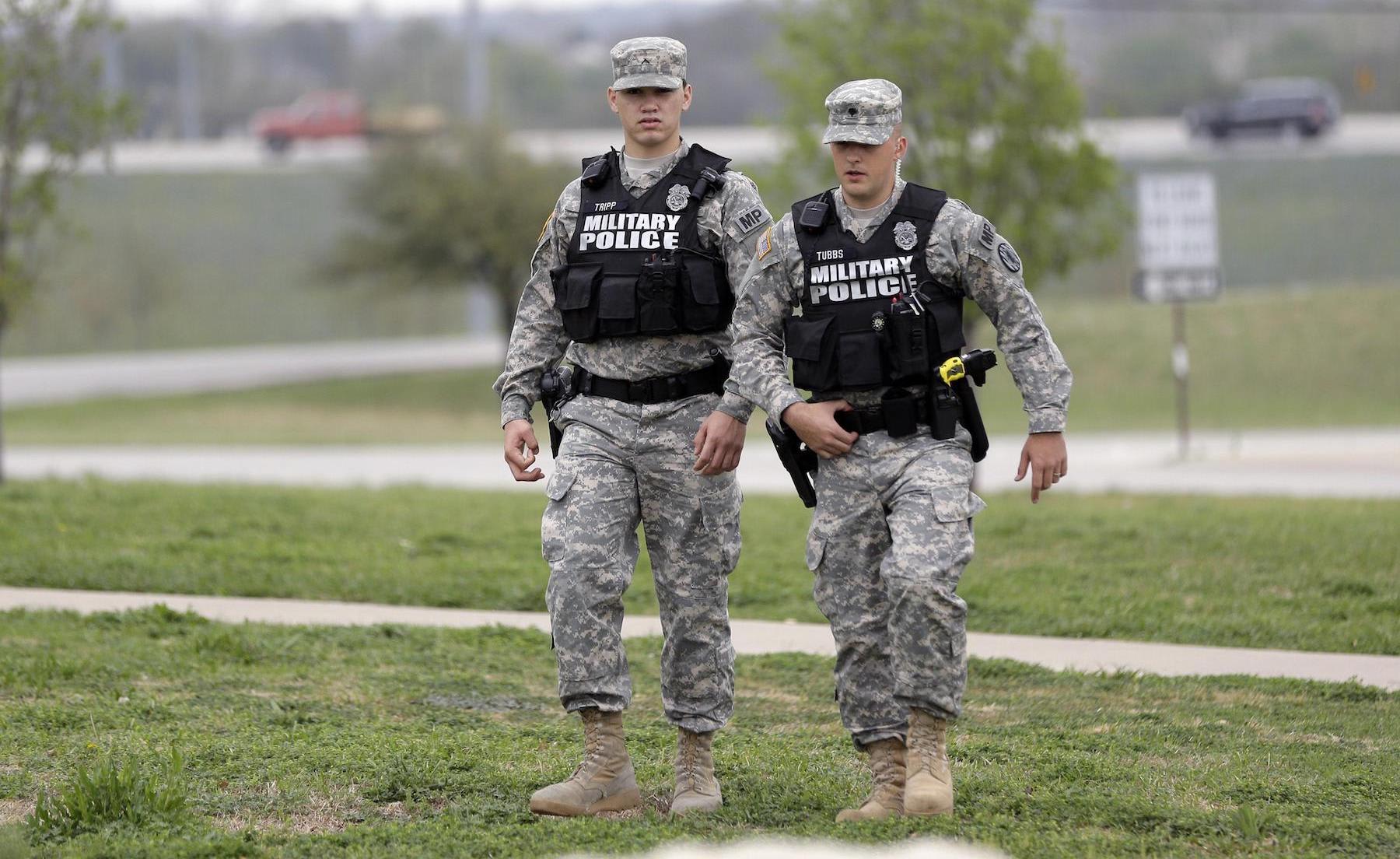Military Police Marines - This is simply due to the fact that almost everyone interested in joining the military police as their first MOS will be between the ranks of E2 and E3 by the time they attend and complete the basic Law Enforcement Military Police Course.
Which one you attend depends largely on where you live. For the majority, anyone living west of the Mississippi river will attend MCRD San Diego, and anyone east will attend Parris Island, SC with a few exceptions.
Military Police Marines

All women will go to Parris Island. Military Police officers serving in the United States Marine Corps are required to attend training that begins with the Marine Officer Basic Course. That is where the officer learns maintenance of mission and troop objectives, leadership, operational aspects, tactics and other mission procedures.

Civilian Job Opportunities
2nd Lieutenants in the US Marines start their career as MP officer have nearly unlimited opportunities for advancement, and they are a job command specialty that tends to lead from the front. Working as a Military police officer can give the new Marine 2nd Lieutenant experience and seasoning that can bode well during later opportunities for advancement as well as helping them down the road in their career.
An individual serving as a military policeman, or woman, will become accustomed to working shift work with a schedule being something like, 4 nights on 3 days off, and 3 days on with 4 nights off.

Therefore, a shift may be nothing more than monitoring a gate post for up to 12 hours, verifying credentials of persons entering and exiting the base, and keeping a lookout for any suspicious vehicles or activity.
The Unit Level Military Police command officer is a 2nd lieutenant and the unit at the Military Police Marine Corps small unit level is ran with all of the basic command authority and responsibilities that are outlined above.

Some of the responsibilities for the command 2nd lieutenant in a Marine Corps small Unit Military police squad can include: acting as a coordinator of police at different levels, directing and commanding MP units and organizations at battalion and unit levels, acting as a military police adviser
to active duty Marine Corps and Reserve Marine Corps Commands, and providing doctrine, information and equipment for various police and military police endeavors. Their uniforms will have a badge on the pocket, and they will be wearing a service belt that consists of their sidearm, nonlethal force weaponry, handcuffs, and any other tools and equipment that may be necessary to safely perform their job.

Serving in the Military Police an officer can rise to the level of Military Police Captain, where you will be responsible for between 200 and 300 soldiers, and with directing their operations and assisting with overall Military Police and security issues at the command battalion level.
